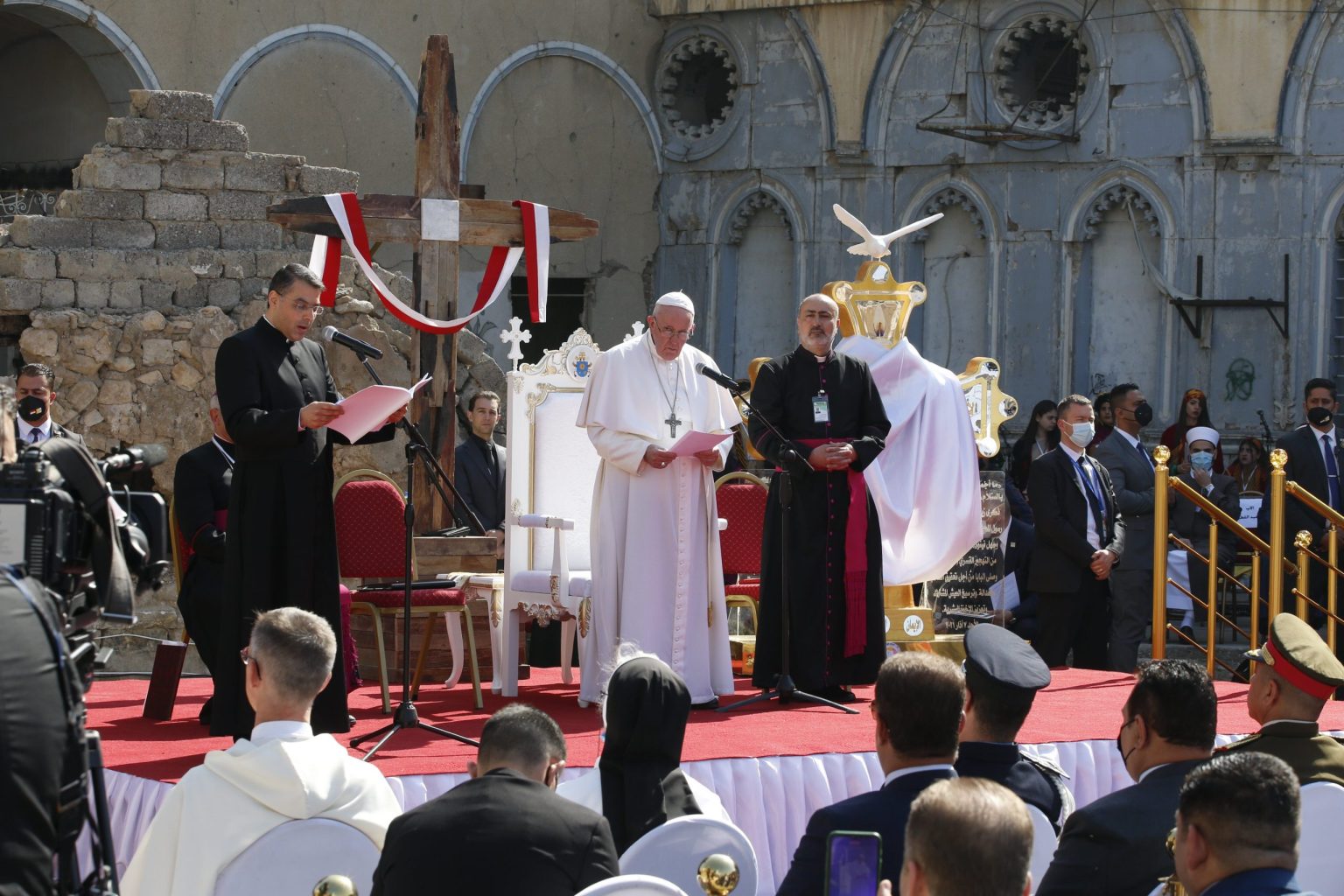Eight months after visiting Iraq’s war-torn city Mosul, Pope Francis sent a message to the citizens, saying that he remembers the destruction he witnessed.
“I pray that the Lord will visit Mosul, and give her consolation after so much suffering,” Francis said. “I pray for all the citizens who died, those who were tortured, those who suffered violence. I pray for the families that today are working to rebuild the city. I pray for friendship among the people of Mosul. All brothers. I pray for Mosul.”
“I remember the destroyed Churches … May the Lord help everyone to rebuild this city!” he said.
Pope Francis’s words to Mosul came in the form of a video recorded by historian turned journalist Omar Mohammed, who runs the blog Mosul Eye. He played a key role in keeping the world informed of the atrocities perpetrated by the Islamic State Group – called Daesh by its victims – during the 2014-2017 occupation of the city.
On Tuesday, the pontiff welcomed Mohammed at his residence in the Casa Santa Marta. Mohammed sent the video to Crux later that day.
He also said the pope asked to be recorded, so that he could send a message to the people of Mosul.
Francis made history earlier this year when he became the first pope to visit Iraq, the land of Abraham. On March 7, the city of Mosul did its best to show the pontiff why, before being the stronghold of a terrorist organization, it was known as a crossroads of tolerance.
Mosul is the administrative capital of Nineveh, and for the past 2,500 years it has represented the pluralistic identity of the region. The rise of ISIS, and the war that followed, caused vast damage to the city’s skyline, destroying landmarks such as the Al-Hadba minaret of the Al-Nouri Mosque and the clock tower of the Church of Our Lady of the Hour, the first of its kind in the Middle East.
The Nineveh Plains is a conglomerate of small villages, many of them historically Christian: Teleskof, Batnaya, Bartella, Karamles, Qaraqosh, and others.
During his visit, Francis defined the damaged structures as reminders of the “perennial human desire for closeness” to God. The clock, he added, “for more than a century has reminded passers-by that life is short and that time is precious.”
With the help of aid organisations such as Aid to the Church in Need (ACN), the Knights of Columbus and the Hungarian government, thousands of Christian families have been able to go home after the region was liberated.





